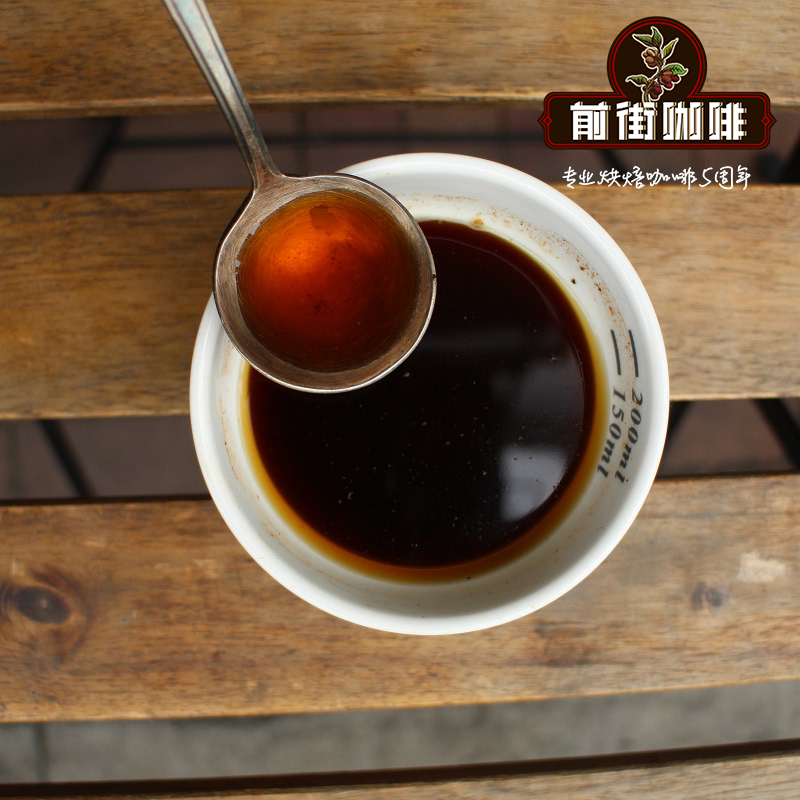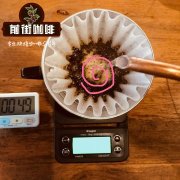Papua New Guinea | what is the flavor and cooking of washed beans at Manor Barroida in the eastern highlands?

Professional coffee knowledge exchange more coffee bean information please follow the coffee workshop (Wechat official account cafe_style)
Papua New Guinea | what is the flavor and cooking of washed beans at Manor Barroida in the eastern highlands?
Barroida Manor is located in the eastern highlands of Papua New Guinea, at the top of the Lamari Valley in the Jabarra Mountains, founded by Ben Colbran. Ben bought the land from indigenous Taro in the 1960s, and they were almost the first to grow crops in the valley. The plantation, covering an area of 220ha and planting about 1 million coffee trees, is the only coffee farm owned and operated by foreigners in Papua New Guinea. The elevation is as high as 1775 meters. In the past, most of the traceable information about the origin of independent plots appeared in the rose summer varieties dominated by Panama in Central America, and then gradually in the countries dominated by Colombia in South America.
In 1965, the government encouraged the early settlers to start growing coffee as a long-term crop. Ben began to grow coffee trees on the Barroida estate and became the first coffee producer in the Eastern Highlands and began to export its output abroad. The whole park is divided into 26 blocks, and the exact variety and daily production process of each planting area are tracked by the target of GPS. The Colbran family is now in the third generation, run by Ben's son Nickel and grandson Chris. In addition to the output of the manor itself, Barodashan has integrated the production resources of small estates and small farmers around the estate to establish a larger supply chain network. After more than 50 years of cooperation with manors and small-scale farmers in this producing area, the Colbran family has gone from guiding agricultural technology and promoting the coffee industry to building bridges, roads and schools in recent years, which has won the general respect of the residents of the Lamari Valley and opened up the market for them to sell their products. For the past 20 years, the Colbrans family has acted as acquisition agents for large multinational traders, ensuring a sustained and stable supply of high-quality coffee through direct trade, which is still commendable and is undoubtedly one of the best and unique coffee farms in Papua New Guinea.
Papua New Guinea is located in the southwest Pacific Ocean, the circum-Pacific volcanic belt, the land belongs to volcanic geology, has a fertile soil, is an important natural condition for good coffee. Although there is a good environment, the share of coffee beans in the world is not high, only 0.7%. Coffee is very important to Papua New Guinea and is the only cash crop in the highlands. 40 per cent or more than 2 million smallholder families in the country depend on coffee beans and are a very important source of livelihood. Most of the coffee beans in Papua New Guinea are grown in the highlands, and the proportion of Arabica is as high as 95%. The coffee beans in Papua New Guinea are mainly sun-dried after washing and fermentation before treatment, and the main varieties are bourbon, Arusha and Mengdonovo.
Manor coffee in Papua New Guinea comes from larger farms and has more refreshing and exquisite cup testing characteristics. The palate is lighter than Java beans, with subtle aromas and complexity, sometimes with acid value and brightness comparable to the highest quality of coffee beans in Central America. A well-known American baker described the sun-dried beans in Papua New Guinea: amazing depth and diverse aroma. The coffee at Kimmel is bright, sour and fruity, while the coffee at Arocara is milder in balance and suitable for espresso.
In Pakistan, important coffee producing areas are East Highlands, Enga, West Highlands and Chinbu provinces, most of which are 1200-1900 meters above sea level, with a Central American style. If the production system is dominated by small farmers, a few have large estates or government-specific support programs. The coffee beans in Papua New Guinea have been respected by many people in recent years because of their solid taste, low acidity and clean flavor, which is in line with the Asian preference for coffee and is a rising producer of Asian coffee.
Producing area: eastern highlands
Producer: Barroida Manor
Treatment: washing treatment
Variety: bourbon, tin pickup
Altitude: 1800 to 2000 m
Flavor: dried apple syrup, sweet nuts, chocolate, Nanyang spices, round texture, balanced taste
Qianjie recommended cooking:
Filter cup: Hario V60
Water temperature: 90 degrees
Degree of grinding: small Fuji 3.5
Cooking methods: the ratio of water to powder is 1:15, 15g powder, the first injection of 25g water, 25 s steaming, the second injection to 120g water cut off, waiting for the powder bed water to half and then water injection, slow water injection until 225g water, extraction time about 2:00
Analysis: using three-stage brewing to clarify the flavor of the front, middle and back of the coffee. Because V60 has many ribs and the drainage speed is fast, it can prolong the extraction time when the water is cut off.
Important Notice :
前街咖啡 FrontStreet Coffee has moved to new addredd:
FrontStreet Coffee Address: 315,Donghua East Road,GuangZhou
Tel:020 38364473
- Prev

Introduction of Santa Clara Manor in Antigua, Guatemala
Professional coffee knowledge exchange more coffee bean information please follow coffee workshop (Wechat official account cafe_style) □ Guatemala Coffee producing area: Antigua □ producer: Santa Clara Manor □ altitude: 16001830M □ Variety: bourbon □ treatment: washing □ Grade: SHB □ Flavor description: dry aroma for warm almonds, toffee caramel, roasted nuts. Sip the entrance and feel the pomelo.
- Next

Guatemala Los Mar Estate Information Coffee Growing History_Viviente Nango Coffee Brewing Teaching
Professional coffee knowledge exchange More coffee bean information Please pay attention to coffee workshop (Weixin Official Accounts cafe_style) Guatemala HHT Finca La Rosma Guatemala coffee Vivienne fruit producing area Losma estate washing country: Guatemala name: Vivienne fruit Losma estate producing area: Vivienne fruit grade: SHB processing method: washing altitude: 16
Related
- Detailed explanation of Jadeite planting Land in Panamanian Jadeite Manor introduction to the grading system of Jadeite competitive bidding, Red bid, Green bid and Rose Summer
- Story of Coffee planting in Brenka region of Costa Rica Stonehenge Manor anaerobic heavy honey treatment of flavor mouth
- What's on the barrel of Blue Mountain Coffee beans?
- Can American coffee also pull flowers? How to use hot American style to pull out a good-looking pattern?
- Can you make a cold extract with coffee beans? What is the right proportion for cold-extracted coffee formula?
- Indonesian PWN Gold Mandrine Coffee Origin Features Flavor How to Chong? Mandolin coffee is American.
- A brief introduction to the flavor characteristics of Brazilian yellow bourbon coffee beans
- What is the effect of different water quality on the flavor of cold-extracted coffee? What kind of water is best for brewing coffee?
- Why do you think of Rose Summer whenever you mention Panamanian coffee?
- Introduction to the characteristics of authentic blue mountain coffee bean producing areas? What is the CIB Coffee Authority in Jamaica?

